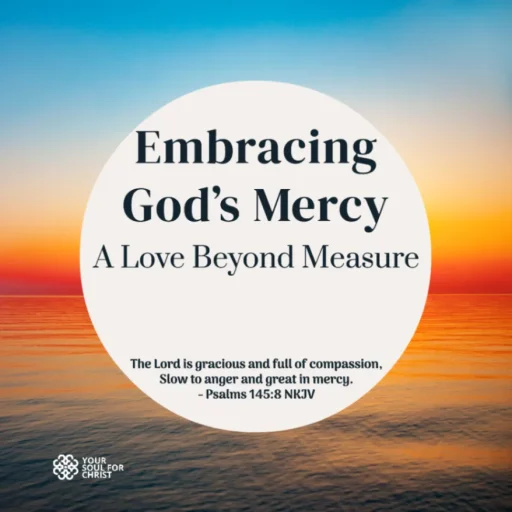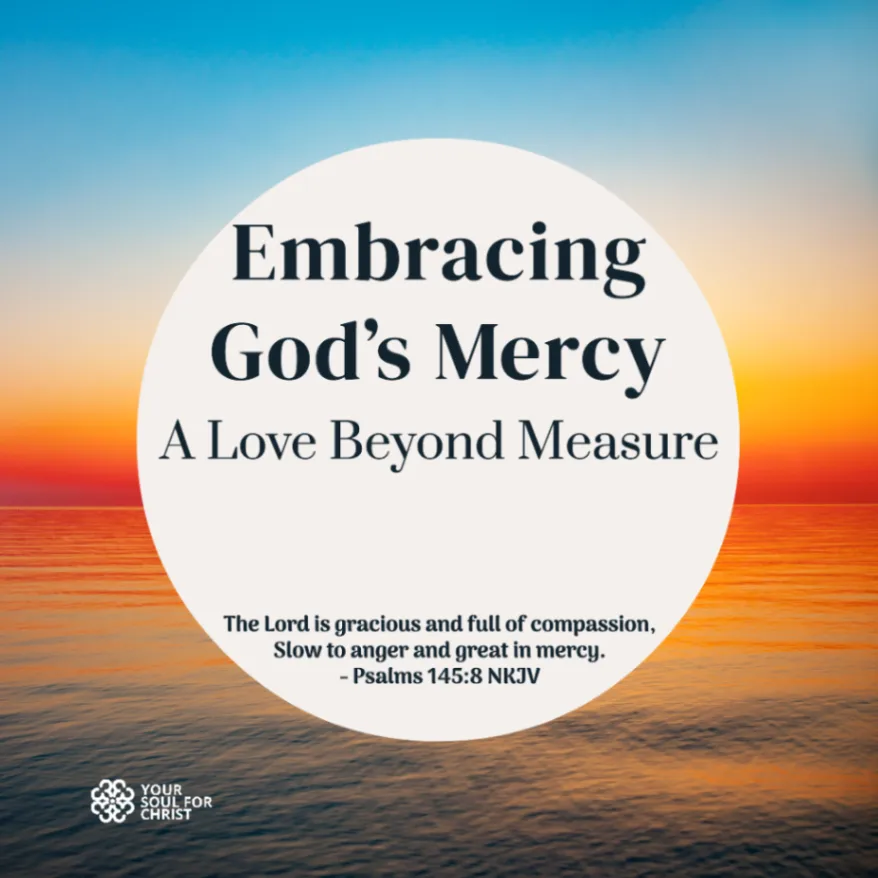The Lord is gracious and full of compassion, Slow to anger and great in mercy.
Psalms 145:8 NKJV
God’s mercy is not a distant or passive attributes but grace in action, woven into His dealings with humanity. Throughout Scripture, we see His mercy as a defining aspect of His character—a compassionate response to human weakness, sin, and suffering. Rather than giving us the judgement we deserve, He extends forgiveness, restoration, and provision. God’s mercy is the reason we are not consumed but instead invited into His unfailing love.
The Bible repeatedly shows God’s mercy in action. In Exodus 32, the Israelites, though miraculously delivered from Egypt, turned away from God and worshipped a golden calf. Despite their rebellion, God responded with mercy. Instead of destroying them, He forgave their sin, provided for them in the wilderness, and led them to the Promised Land. He did not base His mercy on their worthiness but on His boundless grace. This same mercy remains available to us today, no matter our past mistakes.
Jesus illustrated God’s mercy beautifully in the parable of the prodigal son. The younger son wasted his inheritance on reckless living and found himself broken and destitute. Yet, when he returned home in repentance, his father ran to embrace him, clothed him in the finest robe, and welcomed him back with joy. This powerful story reflects God’s mercy toward us. Instead of condemnation, He offers restoration. Instead of rejection, He extends grace. God’s mercy is a gift that cannot be earned—it is freely given to all.
Furthermore, the cross powerfully demonstrates mercy as grace in action. Although humanity deserved eternal separation from God due to sin, He provided salvation through Jesus Christ. As Ephesians 2:4-5 declares, “But God, being rich in mercy, because of the great love with which He loved us, even when we were dead in our trespasses, made us alive together with Christ—by grace you have been saved.” At Calvary, mercy and grace met: God withheld the punishment we deserved and instead offered us eternal life through Jesus’ sacrifice.
God’s mercy has no limits—He gives it freely, though we do not deserve or earn it. He invites us to lay down the burdens of sin, guilt, and brokenness and step into the fullness of His love and forgiveness. Yet, He does not force His mercy upon us; He calls us to respond. In His kindness, He allows us the freedom to choose.
in conclusion, you have the opportunity to embrace God’s mercy and allow it to transform your life. He is patient, compassionate, and always ready to receive you with open arms. As 2 Corinthians 6:2 reminds us, “Now is the time of God’s favour, now is the day of salvation.” Do not delay—God’s mercy is waiting for you. Take a step of faith and experience the peace, joy, and freedom that come from accepting His unending love. Will you choose to receive His mercy today?

